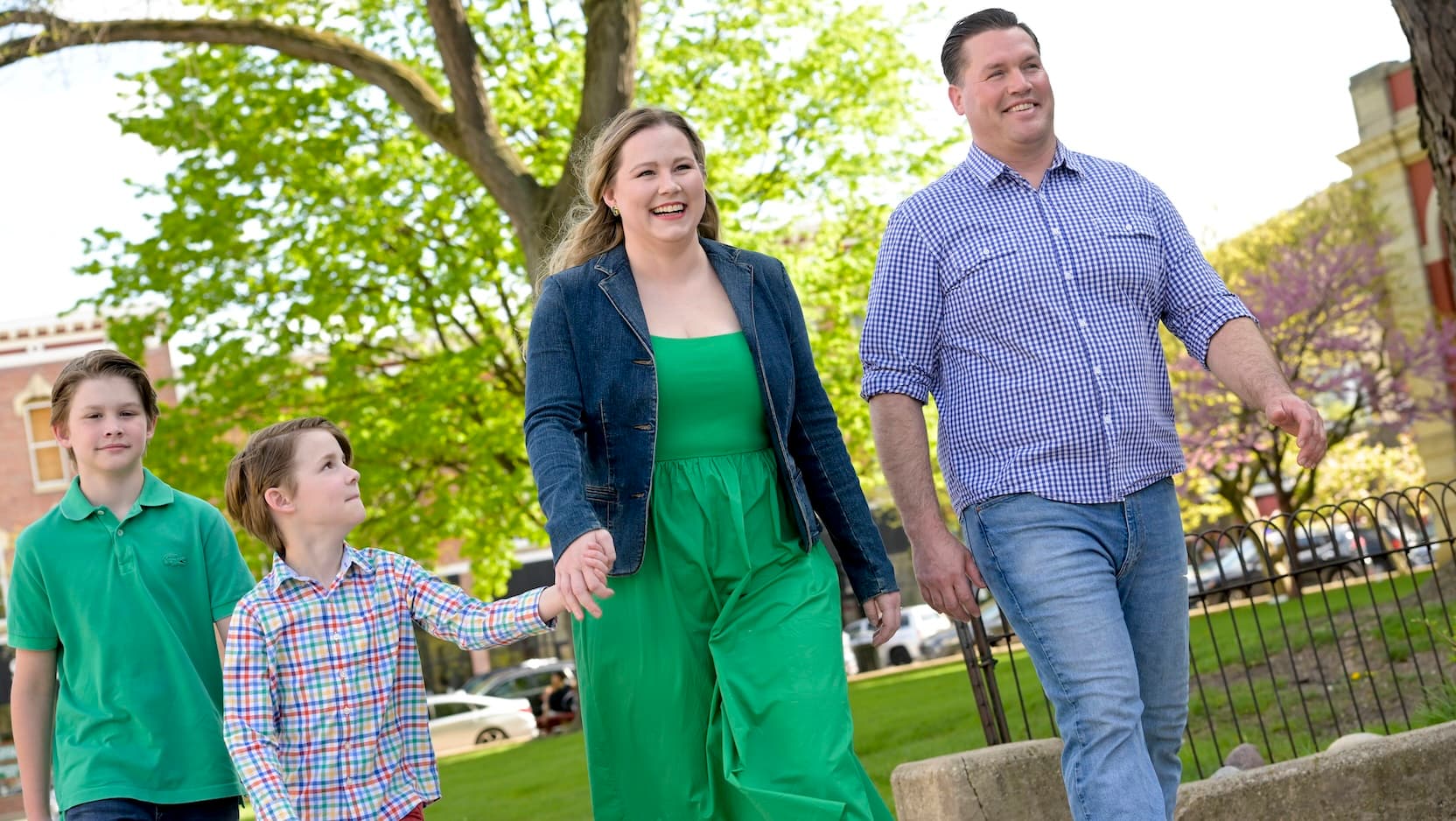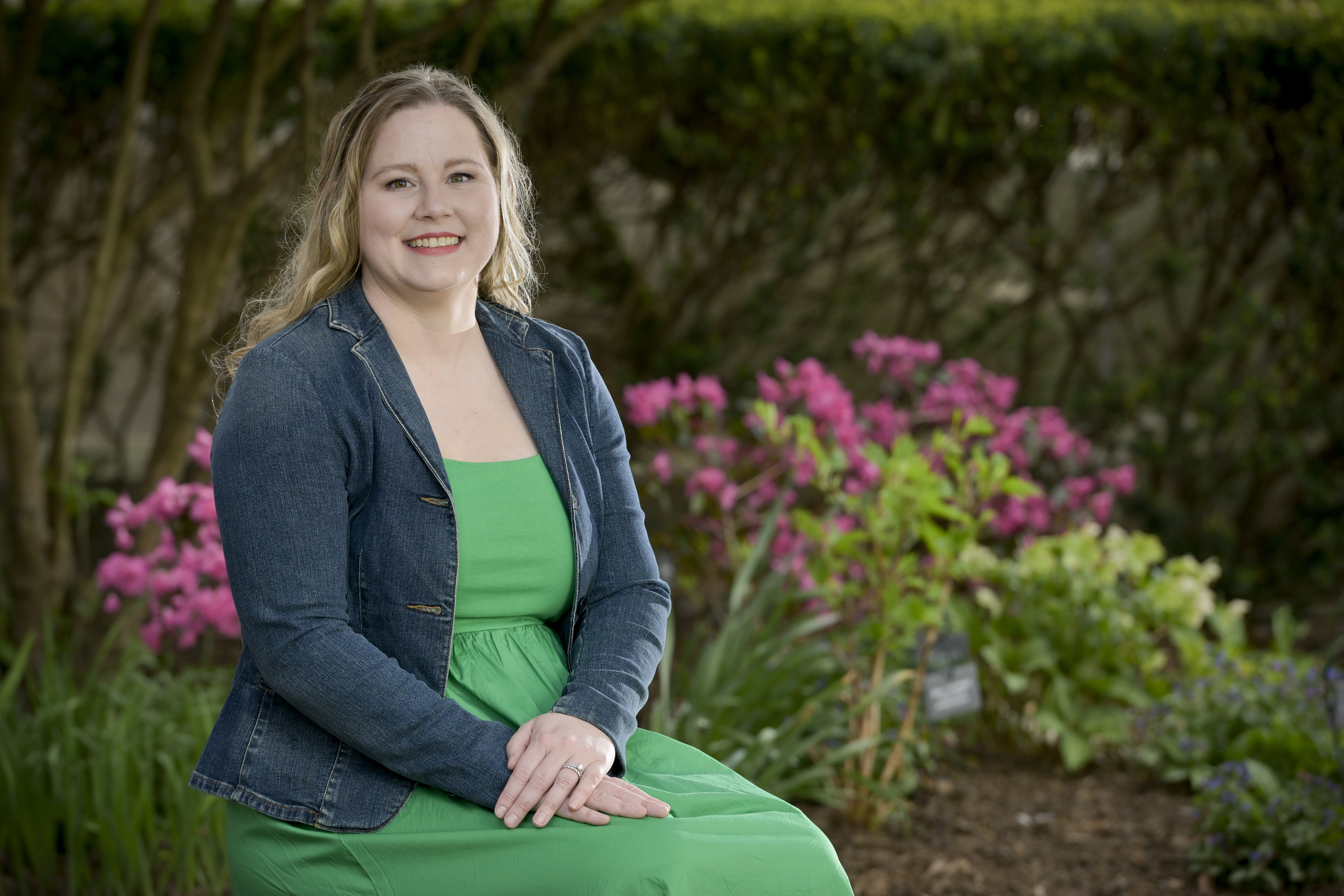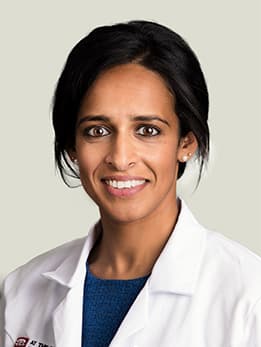Early surgical intervention for GERD spares Crown Point mom years of discomfort

Laura Wallen, of Crown Point, Indiana, with her husband, Mark, and her sons, LJ and Landon. (Mark Black)
For a decade, Laura Wallen lived with gastrointestinal reflux disease (GERD), a chronic condition where a weakened valve allows food, acid and bile to reflux into the esophagus. Bouts of vomiting and discomfort were frequent.
To avoid getting sick, Wallen restricted her diet and only went to places with a bathroom nearby. Some days, it felt risky to even a walk or go on a bike ride with her children.
“Any kind of activity, or bending down, made it way worse,” said Wallen, 39, of Crown Point, Indiana.
Medications provided temporary relief, but they came with harsh side effects and didn't fix the underlying problem. Meanwhile, her GERD worsened with each of her pregnancies and she developed a a hiatal hernia.
“That’s when I thought, ‘I’m done taking medications,’” Wallen said. “I’m going the surgical route to get this fixed.’”

New approach to GERD surgery: Do it earlier
Wallen sought help from UChicago Medicine gastrointestinal surgeon Yalini Vigneswaran, MD, MS, Director of the Esophageal and Foregut Program, who specializes in minimally invasive surgery for esophageal and gastric disorders. Vigneswaran told her about the novel surgical approaches UChicago Medicine uses to treat reflux.
Many healthcare providers recommend that patients only receive surgery to treat GERD after years of symptoms and attempts to manage it.
Vigneswaran and her colleagues studied alternatives to this approach and came up with a new approach.
Their findings?
"If the valve is repaired earlier in the disease process, a much more minimal repair may be sufficient to restore normal function,” Vigneswaran said. “It allows patients to undergo a simpler surgery that can cure their reflux, letting them eat the foods they enjoy and avoid lifelong medications.”
Medication can control GERD symptoms for patients in their 30s or 40s, but it doesn’t improve the valve function. As patients age, the valve will continue to weaken.
At that point, more aggressive surgical procedures, such as fundoplication, or “stomach wrap,” may be necessary. Fundoplication involves a full 360-degree wrap of the stomach around the esophagus to reconstruct the lower esophageal sphincter to function as a one-way valve again.
Although fundoplication is highly effective at controlling reflux, it can come with side effects, such as gas bloat, increased flatulence and difficulty swallowing, Vigneswaran said. Not all patients with Gerd can be adequately treated with hiatal hernia repair alone, without fundopilcation.
In addition to Vigneswaran, UChicgao Medicine GERD specialists include Mustafa Hussain, MD, Alex Lois, MD, MS, and Vivek N. Prachand, MD.
Immediate improvement and energy
For Wallen, the earlier intervention paid off. She only needed a hiatal hernia repair surgery — an outpatient procedure that didn’t require an overnight hospital stay.
Using small incisions and minimally invasive tools, Vigneswaran repaired the small hiatal hernia and malfunctioning valve, restoring her digestive anatomy curing her GERD symptoms.
Within a week of her September 2024 surgery, Wallen was “back to her old self” and could go enjoy outdoor activities with her family without worry.
“It’s been awesome. I wish I’d done it sooner,” said Wallen, who no longer takes GERD medications. “Even my husband told me, ‘You’re a completely new person.’”
Wallen, who works as an ambulatory nurse at UChicago Medicine, wants her story to give hope to others whose lives are disrupted by GERD.
“I was postponing the surgery; most of us have anxiety about going under the knife,” she said. “But now I tell people: ‘Do not hold off. Get this surgery.”
Learn more about paraesophageal hernia repair at UChicago Medicine.

Yalini Vigneswaran, MD, MS
Yalini Vigneswaran, MD, MS, is an advanced minimally invasive gastrointestinal surgeon who specializes in esophageal and gastric disorders, including motility disorders, esophageal and gastroesophageal junction cancers, reflux disease and paraesophageal hernias.
See Dr. Vigneswaran's bioAnti-Reflux Surgery
If you are interested in learning more about anti-reflux surgery options for GERD, email our team at GERDsurgery@uchicago.edu.
Request an Appointment
We are currently experiencing a high volume of inquiries, leading to delayed response times. For faster assistance, please call 1-888-824-0200 to schedule your appointment.
If you have symptoms of an urgent nature, please call your doctor or go to the emergency room immediately.
You can also schedule an appointment instantly for in-person and video visits through our online scheduling portal.
* Indicates required field
